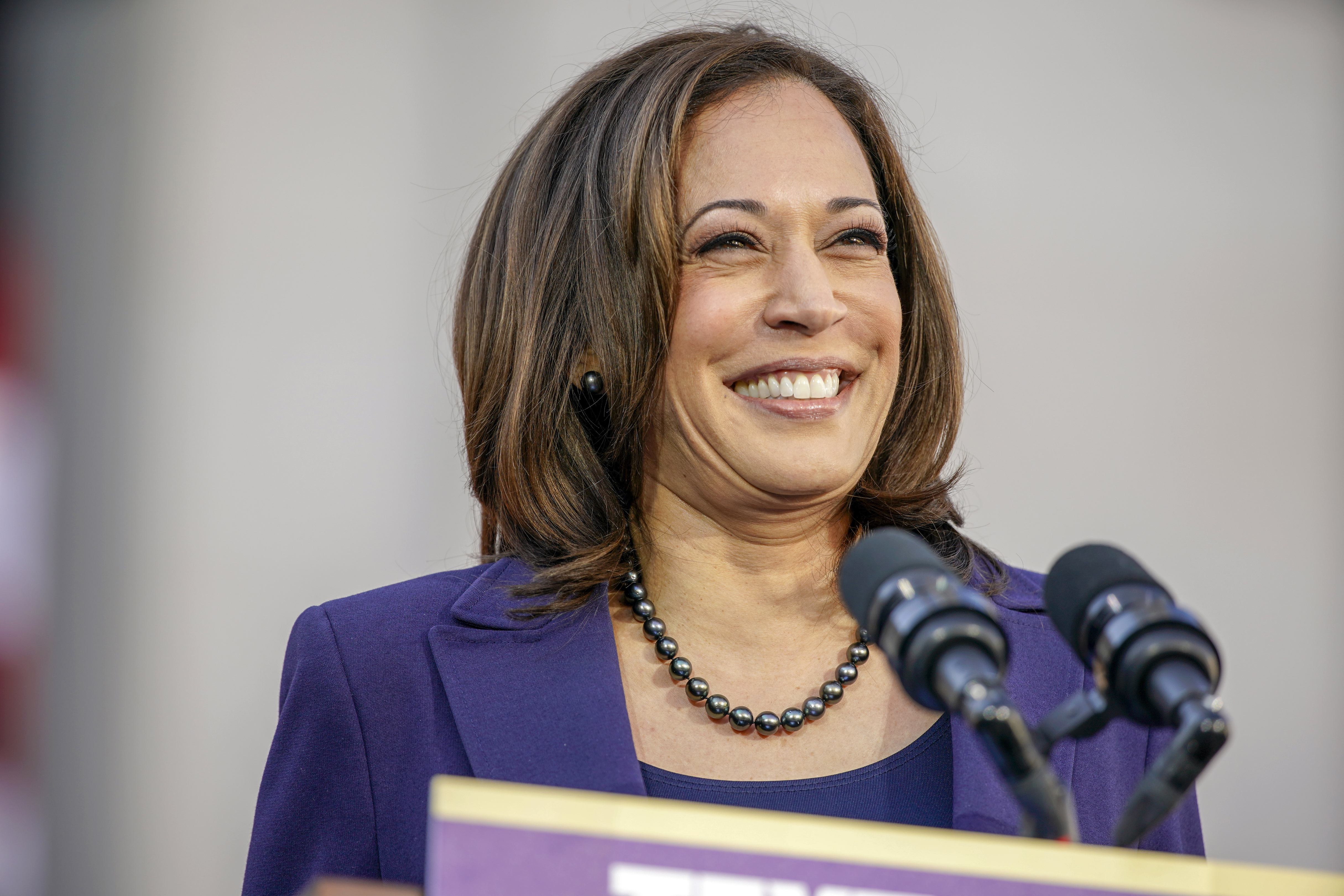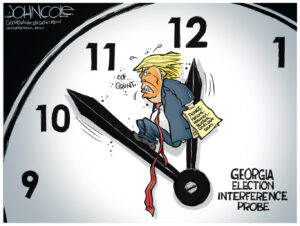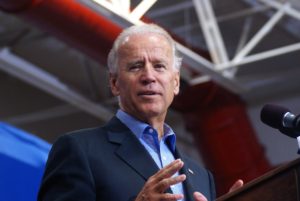Does Kamala Harris Deserve to Call Herself a Progressive?
Her support for “Medicare for All” may not be enough. Sen. Kamala Harris formally launches her presidential campaign. (Tony Avelar / AP)
Sen. Kamala Harris formally launches her presidential campaign. (Tony Avelar / AP)
“I think [marijuana] gives a lot of people joy and we need more joy in the world,” said Sen. Kamala Harris, D-Calif., on The Breakfast Club radio show Monday, explaining that she supports legalizing the drug. It was a fairly lighthearted interview with the 2020 presidential candidate, but as Addy Baird writes in ThinkProgress, Harris the presidential candidate’s views on marijuana are “basically unrecognizable compared with the Harris of just a few years ago.” In 2010, while running for attorney general of California, she came out against legalization, claiming it would, according to New York Magazine, encourage “driving while high.”
Harris’ progressive shift since 2016 on this and a number of issues, including criminal justice and health care, has, as Briahna Joy Gray writes in The Guardian, “left some progressives skeptical,” especially since her change of heart is not, according to Gray, ideologically consistent.
Since announcing her presidential run, Harris told a CNN town hall that “I feel very strongly about this, we need to have ‘Medicare for All’, ” before backtracking the next day, saying she did not necessarily mean eliminating private insurance entirely.
“There’s a persistent tension,” Gray continues, “between the firmness with which Harris commits herself to her catchphrases and the shallowness of her political commitments” and her record. Gray notes that Maya Harris, Kamala’s sister and policy adviser, also advised Hillary Clinton in 2016, and that year, Clinton said in a speech that a single-payer health care system would “never, ever come to pass.”
Harris’ prosecutorial past however, more than her apparent changes of heart on health care and marijuana, are most concerning to critics. As Gray points out, she “[failed] to prosecute ‘foreclosure King’ turned Treasury secretary Steve Mnuchin, while supporting an anti-truancy initiative that criminalized noncompliant parents and threatened them with jail time …”
Baird, in ThinkProgress, makes similar observations, writing that Harris “has a complicated prosecutorial history with sex work, school truancy and wrongful convictions.”
In 2015, when she was California’s attorney general, Harris fought against proposals to legalize sex work. More recently, she voted for SESTA (Stop Enabling Sex Traffickers Act), a bill that sex workers and advocates say unfairly labels sex work as sex trafficking, and, as Samantha Cole wrote in Vice’s Motherboard, “sex workers and advocacy groups warned would have a disastrous impact on sex workers’ lives.”
Harris’ history of doubling down on what critics see as wrongful convictions is also giving progressives pause. Writing in a New York Times op-ed, law professor and attorney Lara Bazelon cites the case of George Gage, a man accused of sexually abusing his stepdaughter. Gage was convicted largely on the basis of the stepdaughter’s testimony, even though, as Bazelon points out, the judge later found “that the prosecutor had unlawfully held back potentially exculpatory evidence, including medical reports indicating that the stepdaughter had been repeatedly untruthful with law enforcement.”
The stepdaughter’s mother, Bazelon writes, called her a “pathological liar.”
When the case reached the United States Court of Appeals for the 9th Circuit in San Francisco, Harris’s office defended the conviction on the grounds that Gage didn’t correctly raise the issue, while forced to act as his own lawyer. The appellate judges sent the case to mediation, which, according to Bazelon, was “a clear signal for Ms. Harris to dismiss the case.” She didn’t, and Gage remains in jail.
Gray believes Harris is getting better at discussing economic inequality, citing recent speeches in which Harris “routinely hits populist themes, referencing the fact that 40% of Americans are $500 away from an economic emergency, and arguing ‘they’re trying to divide us. They’re trying to have us point fingers at each other’. ”
The speeches, however, may not be enough to convince critics like Gray that Harris’s latest talking points are a genuine change of heart and evolution in thinking, rather than an insincere attempt to court a leftist vote. For now, Gray concludes, “speaking truth is an important first step. But it’s not a substitute for having the courage and vision to do something about it.”
Your support is crucial…With an uncertain future and a new administration casting doubt on press freedoms, the danger is clear: The truth is at risk.
Now is the time to give. Your tax-deductible support allows us to dig deeper, delivering fearless investigative reporting and analysis that exposes what’s really happening — without compromise.
Stand with our courageous journalists. Donate today to protect a free press, uphold democracy and unearth untold stories.









You need to be a supporter to comment.
There are currently no responses to this article.
Be the first to respond.